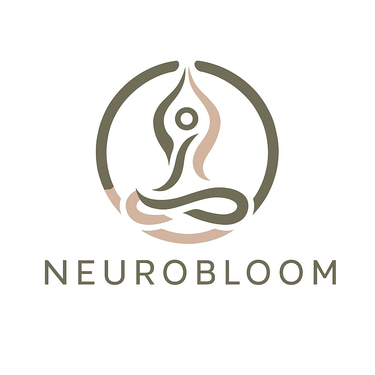Ketamine Therapy




Expert Ketamine Therapy
Receive personalized ketamine therapy from Stanford trained anesthesiologist with 30 years experience.
Mountain Retreat Experience
Enjoy a peaceful mountain environment designed to enhance your healing journey and overall well-being.
What is ketamine therapy?
Ketamine therapy, originating from its use as an anesthetic agent, has garnered significant attention in recent years for its application in treating various mental health wellbeing and chronic pain syndromes. This innovative treatment modality is characterized by its distinctive mechanism of action, which differentiates it from traditional antidepressants and analgesics, providing hope for patients who may not have responded to conventional therapies.
In the realm of mental health, in medical literature ketamine therapy has shown promise particularly in the treatment of major depressive disorder (MDD), treatment-resistant depression (TRD), and suicidal ideation. MDD afflicts millions worldwide, often leading to profound functional impairment and diminished quality of life. Traditional antidepressants may take weeks to exert their effects, and for some individuals, they prove ineffective. In contrast, ketamine is typically administered either as an intravenous infusion or a nasal spray, achieving rapid antidepressant effects within hours for many patients. This swift action is believed to be mediated through glutamatergic neurotransmission, which enhances synaptic plasticity and facilitates neuronal connectivity, potentially ameliorating depressive symptoms.
Moreover, ketamine therapy has been explored as a treatment for post-traumatic stress disorder (PTSD), anxiety disorders, and obsessive-compulsive disorder (OCD). The efficacy of ketamine in these conditions underscores the need for further research to elucidate its broader implications within the field of psychiatry. The compassionate approach of ketamine therapy not only addresses the immediate psychological distress but also fosters a therapeutic alliance between the clinician and the patient, emphasizing the holistic nature of mental health treatment.
In addition to its mental health applications, ketamine therapy has also emerged as a viable option for treating chronic pain conditions, such as fibromyalgia, complex regional pain syndrome (CRPS), and neuropathic pain. Chronic pain, which affects a substantial percentage of the population, can be debilitating and often resistant to existing pain management strategies. Ketamine's analgesic properties are posited to derive from its NMDA receptor antagonism, which plays a crucial role in pain perception and the development of central sensitization—a process where the nervous system becomes overly reactive to pain stimuli.
Patients suffering from fibromyalgia often experience widespread pain, fatigue, and sleep disturbances, with a complex interplay of psychological and physiological factors. Ketamine therapy has been documented to provide significant relief for many individuals, offering a renewed sense of hope in their pain management journey. Similarly, those with CRPS, characterized by severe, persistent pain typically following an injury, may find that ketamine serves as an effective adjunct to existing pain management protocols, alleviating the debilitating symptoms associated with the condition.
The approach to ketamine therapy is patient-centered and requires a thorough assessment of both mental and physical health conditions. Prior to treatment, Dr. Silver will conduct comprehensive evaluations to establish the appropriateness of ketamine as a therapeutic option. The importance of monitoring during treatment cannot be overstated, as this allows us to tailor interventions based on individual responses and preferences, ensuring both safety and efficacy throughout the process.
The infusion may induce a dissociative experience, which, although disconcerting for some, can also serve as an opportunity for introspection and emotional release. These experiences, when approached with the right psychological support, can lead to transformative changes in perception, facilitating breakthroughs in patients’ mental and emotional states.
In conclusion, ketamine therapy represents a paradigm shift in the treatment of complex mental health disorders and chronic pain conditions, offering new avenues for patients who have long struggled with inadequate relief. As research continues to expand our understanding of ketamine's multifaceted role in therapy, it is imperative to maintain a compassionate, patient-centric approach that underscores the intrinsic connection between pain, suffering, and the human experience. The hope is that more individuals will gain access to this innovative treatment, helping to improve metal wellbeing and alleviate chronic pain for a brighter future.

Ketamine Therapy Categories
Depression
Anxiety : Ketamine therapy has shown promising results for alleviating anxiety symptoms. It acts quickly, providing relief for individuals who may not respond to traditional treatments. This method may help reshape neural pathways associated with mood regulation, offering a new avenue for those suffering from severe anxiety.
PTSD : Ketamine modulates neural circuits associated with trauma in individuals with PTSD, leading to a reduction in symptoms such as flashbacks, hypervigilance, and emotional numbness. Patients often experience diminished intrusive memories, enhanced emotional engagement, increased psychological resilience, and a greater overall sense of safety.
Depression: Research indicates that ketamine therapy can provide rapid relief from depressive symptoms, particularly in individuals who have not responded to traditional antidepressant treatments. Its distinctive mechanism of action targets glutamate receptors in the brain, offering a novel approach to managing treatment-resistant depression.
Postpartum Depression
Postpartum: Ketamine can provide significant mood improvement rapidly—an important advantage in the postpartum period, when timely intervention is critical for both the mother and infant's well-being. By modulating glutamate transmission and promoting neuroplasticity, ketamine helps alleviate core symptoms such as sadness, anxiety, emotional detachment, and feelings of hopelessness. Early studies suggest it may be a safe and effective option under careful medical supervision, offering new hope for mothers struggling with severe or treatment-resistant postpartum depression.
OCD
OCD: Clinical studies have found that even a single ketamine infusion can lead to rapid, though sometimes temporary, reductions in obsessive thoughts and compulsive actions. When paired with psychotherapy, such as exposure and response prevention (ERP), ketamine may enhance treatment outcomes by increasing cognitive flexibility and reducing anxiety around intrusive thoughts.
Alcohol Use
Alcohol Use: Ketamine therapy is being explored as a novel treatment for alcohol use disorder (AUD), showing promise in reducing cravings, enhancing abstinence, and preventing relapse. Through its action on the brain’s glutamate system—particularly the NMDA receptor—ketamine may help "reset" maladaptive neural pathways involved in addiction. It can also promote neuroplasticity, making the brain more receptive to behavioral interventions like psychotherapy.
Fibromyalgia
Fibromyalgia: Ketamine therapy is being investigated as a promising treatment for fibromyalgia, a chronic pain condition often resistant to conventional therapies. Fibromyalgia is believed to involve central sensitization—an abnormal amplification of pain signals in the nervous system. Ketamine, through its antagonism of NMDA (N-methyl-D-aspartate) receptors, helps modulate this overactive pain signaling, potentially reducing both widespread pain and associated symptoms such as fatigue, sleep disturbances, and cognitive impairment.
Migraine
Complex Regional Pain Syndrome (CRPS)
CRPS: Ketamine therapy is a promising treatment for Complex Regional Pain Syndrome (CRPS), especially in cases resistant to standard therapies. By blocking NMDA receptors, ketamine helps reduce central sensitization and severe nerve pain. It is typically administered through IV infusions, offering rapid relief of pain, allodynia, and hyperalgesia. Many patients report improved mobility and quality of life, though multiple sessions may be needed. Ketamine is most effective when combined with physical therapy and psychological support, and is generally well-tolerated under medical supervision.
Migraines: Ketamine therapy is an emerging option for treating chronic and treatment-resistant migraines, particularly when standard medications have failed. By blocking NMDA receptors involved in pain transmission and central sensitization, ketamine can help reduce migraine intensity, frequency, and duration. It is typically administered via IV infusion in a clinical setting. While not a first-line treatment, ketamine may offer rapid relief for certain patients, especially those with severe or refractory migraine conditions.
*Although Ketamine treatments show promise in many clinical scenarios, the efficacy and clinical outcome is not guaranteed in any individual patient or treatment at this clinic.
Anxiety
PTSD
contact
neurobloom@mammothketamineclinic.com
Phone: 760-989-8989
© 2025. All rights reserved. HIPPA Compliant
mammothketamineclinic.com
